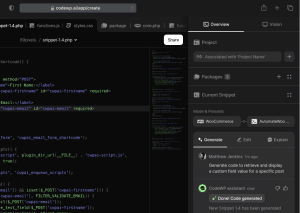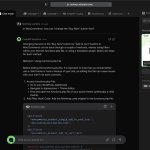









WP_Query is the fundamental class used in WordPress development to retrieve and display content from the database according to specific criteria. It has a vast array of input parameters that allow fetching targeted subsets of content.
For example, you can use 'post_type' parameter to query custom post types:
$args = [ 'post_type' => 'products' ]; $query = new WP_Query( $args );
Taxonomy parameters like 'category_name' let you filter by terms:
$args = [ 'category_name' => 'news' ]; $query = new WP_Query( $args );
Combining multiple parameters with conditional logic enables very customized queries:
$args = [ 'post_type' => 'post', 'tag' => 'featured', 'posts_per_page' => 5, 'orderby' => 'comment_count' ]; $query = new WP_Query( $args );
The date_query parameter also allows intricate date-based filtering with comparison operators and nested logic. Along with meta_query for custom fields, it enables slicing and dicing content using database principles.
Other common parameters involve filtering by search term, author, minimum/maximum posts, inclusion/exclusion of IDs, pagination, sorting orders etc. Extremely targeted subsets of content can be craftily fetched from the CMS database with WP_Query.
The WP_Query generator tool eliminates the need to manually write all the intricate input parameters and arguments required in these queries. Instead, through its graphical interface, you simply check and select the post types, taxonomies, dates, custom field values and other criteria that should filter content.
As options are selected, it automatically constructs the complex database query in PHP code format incorporating the requisite input arguments and validation rules. The output can be directly implemented into WordPress plugins, shortcodes, theme template files etc. to display targeted content.
The tool also offers an advanced AI-powered natural language interface that allows you to simply describe your content filtering needs in your own words instead of manually configuring complex options. For example, you can provide a query prompt like "Show the latest 5 featured posts tagged with news and tech that have over 50 comments".